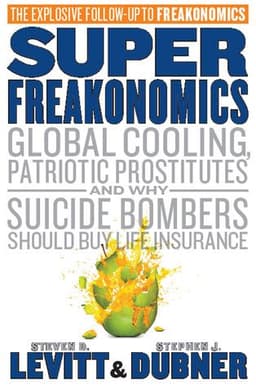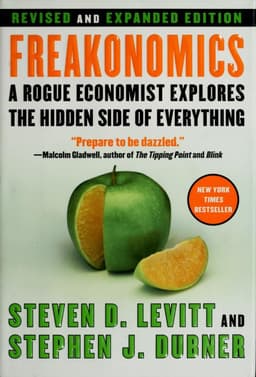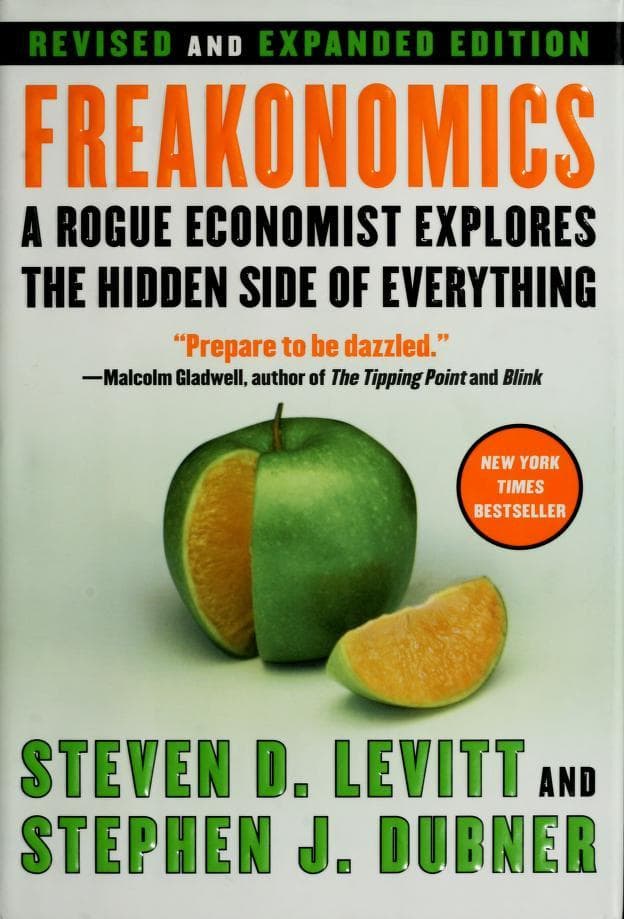
Super Freakonomics Book Summary
Global Cooling, Patriotic Prostitutes And Why Suicide Bombers Should Buy Life Insurance
Book by Steven D. Levitt , Stephen J. Dubner
Want to read the full summary?Click here to read for free!
Summary
In Superfreakonomics, Levitt and Dubner challenge conventional wisdom on topics ranging from prostitution to terrorism to global warming, using data and economic principles to uncover surprising insights and challenge readers to think like a Freak.
Sign in to rate
Average Rating: 5
These are the best quotes from Super Freakonomics by Steven D. Levitt , Stephen J. Dubner. If you want to read a full summary of this book for free, click here.
Thinking From a Baseline
“In a complex world where people can be atypical in an infinite number of ways, there is great value in discovering the baseline. And knowing what happens on average is a good place to start. By so doing, we insulate ourselves from the tendency to build our thinking - our daily decisions, our laws, our governance - on exceptions and anomalies rather than on reality.”
Section: 1, Chapter: 1
Are People Inherently Altruistic?
“Are people innately altruistic?" is the wrong kind of question to ask. People are people, and they respond to incentives. They can nearly always be manipulated--for good or ill--if only you find the right levers.”
Section: 1, Chapter: 3
Related Content


Freakonomics Book Summary
Steven D. Levitt, Stephen J. Dubner
Freakonomics is a rogue economist's exploration of the hidden side of everything, from cheating teachers and bizarre baby names to self-dealing realtors and crack-selling mama's boys, teaching you to question the world with data, dig deeper than conventional wisdom, and discern how people get what they want.
Freakonomics is a rogue economist's exploration of the hidden side of everything, from cheating teachers and bizarre baby names to self-dealing realtors and crack-selling mama's boys, teaching you to question the world with data, dig deeper than conventional wisdom, and discern how people get what they want.
Psychology
Sociology
Economics

